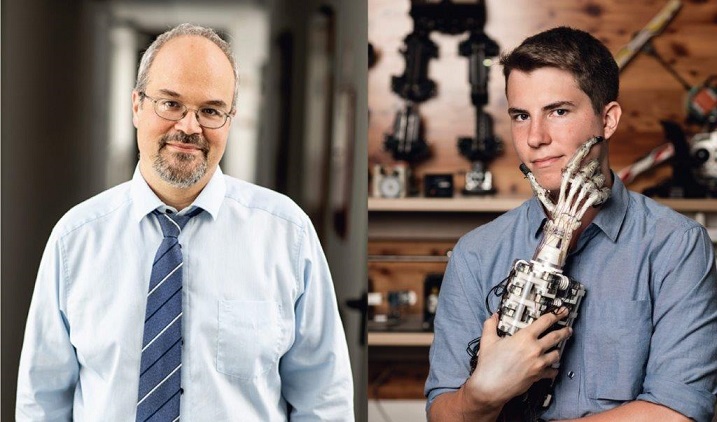Benedek Tasi, a recent postgraduate student in Infobionics Engineering MSc, and György Cserey, Vice Dean for Innovation of Pázmány Péter Catholic University are in the September issue of the National Geographic with their newly developed robotic hand.
"I have become able to perform new tasks ever since I started to test on myself what the capabilities of the human hands are" – says Benedek Tasi, who is developing an anatomically correct biomechatronic prosthesis.

The first thought is the classical James Cameron movie, The Terminator when you first see the newly developed robotic hand developed by Benedek Tasi and his colleagues. Based on Mr Tasi's idea, a group of friends began the work on the robotic hand, now properly functioning, during their university years. The development of the somewhat still science-fiction-looking device was supervised by the leaders of the Sensing-actuating Robotics Lab, Associate Professor György Cserey and Associate Professor Miklós Koller of Pázmány Péter Catholic University (PPCU). Mr Tasi explains it with a smile that the basic idea of designing an anatomically accurate, so-called biomechatronic hand came in 2017, because "the current units resembling the human hands with their robotic anthropomorphic internal structures differ way too much from the real human hands. Therefore, even if they are very precise, they are suitable for limited tasks only."
To read the full article, visit the website of the university HERE.
Links and sources: itk.ppke.hu
Pázmány Péter Catholic University
Szentkirályi u. 28. Budapest,Hungary 1088